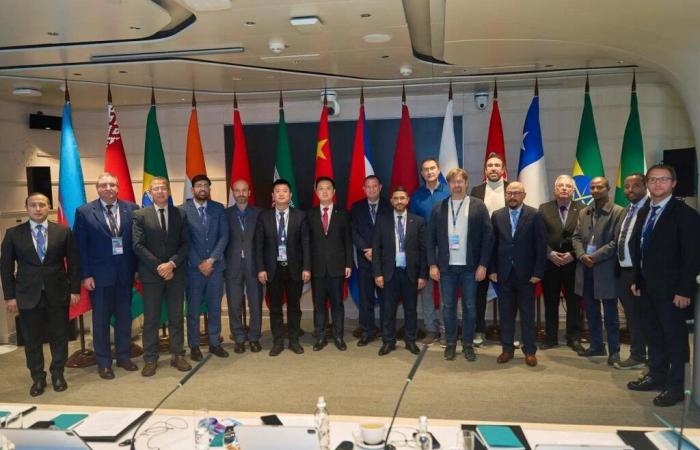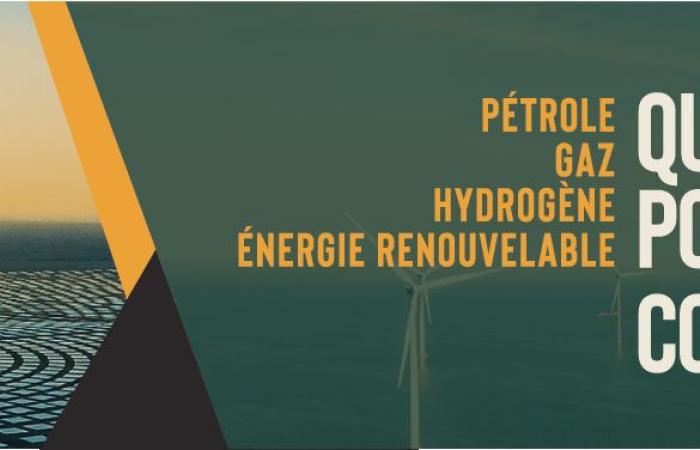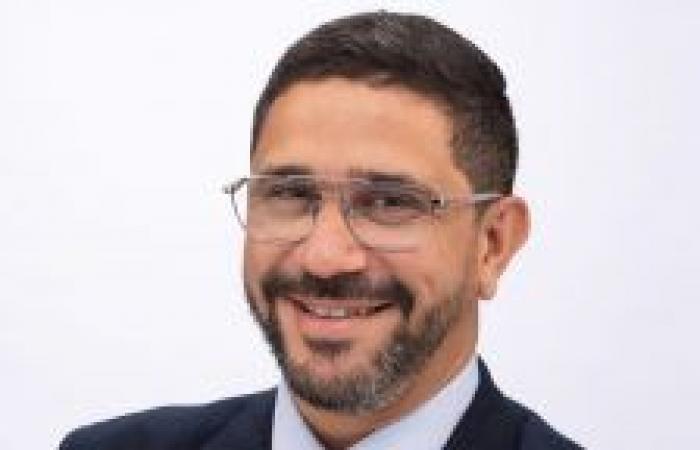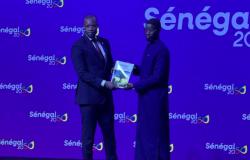
On December 11, Russia hosted the launch of the International Artificial Intelligence Alliance, bringing together BRICS nations and other international partners (BRICS+AI). Among them, the Federation of African Digital Business (FADB), chaired by Redouane El Haloui, also head of APEBI, the Moroccan Federation of Information Technologies, Telecommunications and Offshoring. Intended, among other things, to connect national AI associations and development institutions around the world, the alliance focuses on the collaborative development of artificial intelligence. What role can Morocco play within such an organization? We asked the question to Redouane El Haloui, which enlightens us on the motivations and ambitions of the entity it represents.
It was upon invitation to join and participate in the launch of the BRICS Alliance for the Development of Artificial Intelligence that Redouane El Haloui, interim president of the Federation of African Digital Business (FADB) joined the ‘initiative. This federation brings together, alongside Morocco, eight other African countries: Cameroon, Congo, Ivory Coast, Djibouti, Guinea, Nigeria and Rwanda.

« I was invited by BRICS, via Russia, which had the presidency this year, to join the AI international alliance. I therefore consulted the founding members of the African Federation, and they unanimously agreed that we participate. » he explains.
Thus, the FADB has officially joined the International Artificial Intelligence Alliance, driven by the BRICS, which plans to expand its members, as specified by Russian President Vladimir Putin during his speech on this occasion.
By joining this alliance, APEBI, through the FADB, intends to bring the voice of Morocco and Africa to global bodies around Artificial Intelligence, by actively participating in discussions on the subject. According to Redouane El Haloui, this approach allows the African Federation to assert a “ strategic positioning on an international scale », notably by establishing agreements in the four corners of the world.
Indeed, as its president explains, the Moroccan Federation of Information Technologies, Telecommunications and Offshoring — which is also a member of the international alliance of industrial technologies in the United States and vice -president of the Arab Federation — aims to strengthen its international agreements, particularly with Europe, the United States and Latin America.
Read also|Security Council: Blinken welcomes partnership with Morocco on Artificial Intelligence
For Redouane El Haloui, “ it is this balanced positioning between different international forces that allows us to demonstrate our neutrality. “, emphasizing that he ” It is important to have freedom of choice. »
An international AI alliance: What for?
The objectives of the FADB, and more specifically of the APEBI, in taking part in this alliance are multiple. But Redouane El Haloui insists on two points which are, according to him, essential: referencing and ethics.
To explain his point, he evokes the experience he had with generative AI during his stay in Russia, which he questioned about Morocco and Africa. What he observed challenged him. “When I was in Russia, I did the exercise of using AI. I asked him questions about Morocco and Africa. And it’s not a question of power, because she answered on technical subjects, which were very interesting. She is as strong as the other AI. But I was intrigued by our SEO and the level of information which was not up to what I observed elsewhere. » he says.
Continuing, he insists on the need to correctly reference African data to allow all AI users to have reliable information on the continent: “ When Russian, Chinese or Brazilian users use AI, they must have access to the right information on Morocco and Africa. Today, we are starting to go directly through AI, and we are going to Google less and less to look for information. If we are not well referenced, we risk not only missing out on opportunities, but even worse, being misunderstood, if our culture, our identity, our expertise is not well transcribed. “.
“Let’s be experts in the use of AI”
According to Redouane El Haloui, Africa, and particularly Morocco, cannot afford to remain on the sidelines of the artificial intelligence revolution. This is an opportunity that the continent absolutely must seize.
« NWe also, users of AI, must have the ability to know which AIs exist. I also want to make sure they have the right level of information, and know how they work. », he argues.
Even if he admits that the continent has fallen behind in the field of AI, he remains convinced that Morocco has a card to play: “ It takes hundreds of billions of dollars to develop AI. These are very powerful mathematical models. We are consumers of AI. I was recently chatting with a Moroccan AI expert who told me that we are a country that is an expert in the use of AI and its application in different fields.. » he adds.
Read also|Morocco and Artificial Intelligence: What present? What future?
« AI can be applied to different models. Medical, education, industry, governance, security. You must ensure proper use. Perhaps we will stand out internationally as a country expert in the use of AI with a very profound way of using it. If we are not good manufacturers or designers of AI, let us be experts in the use of AI. »
“We are involved in assessing the level of ethics and values”
Among the reasons that motivate APEBI’s involvement in different bodies is the desire to promote ethics and human values in AI, with an emphasis on the African perspective.
« Today, we are involved in evaluating the level of ethics and values. AI users must have access to information with ethics, human values, with our point of view. We have a position to be able to express our vision of ethics and the human values that resemble us as Africans. It’s beyond technology. We are really thinking about referencing our identity and our culture in these AI which are gaining momentum. » declares Redouane.
According to him, the African Federation, which brings together experts and companies from the technological world, has an important role to play at this level. “ We know the limits of AI and we have the chance to raise our voice in this international alliance. »
What about digital sovereignty?
To this question, Redouane El Haloui wants to be reassuring. This aspect is at the heart of all the actions of APEBI and the FADB, particularly on the subject of artificial intelligence: « Digital sovereignty becomes necessary. Coming back from Russia, I am unable to say what will happen in the future, because it is happening at breakneck speed. It’s already good that we are there, but it is also important to see how we can promote our sector, our industries, and carry out a digital transformation of our companies, while remaining digitally sovereign. »
« When you see AI and the way it is used, it is a vacuum of personal information. I want an AI in my country that can be used while we ensure that personal data remains in the country. This is to protect our fellow citizens. “, he continues.
For him, it is necessary to maintain control of information: “ When I talk about SEO, it’s the same. What do we want to reference? We are not going to reference the medical data of our fellow citizens. Instead, we will reference our identity, our culture, our expertise, our know-how, our economy, etc. on information that will attract investors, tourists, to develop what we wish to promote. »
Making Morocco an African hub for AI and technologies
APEBI also wishes to promote Morocco and Africa on the global artificial intelligence scene.
« The fact is that we were invited by the BRICS means that, somewhere, we were spotted. This is also why we created the African Federation. This is to show that Africa is another continent and that Morocco is positioning itself as a hub. » he affirms.
Read also|Artificial intelligence: A revolutionary rise and its implications by 2035
« In Russia, when I said that APEBI represented 8 African countries, a Brazilian, whose country is also a member of the alliance, came to me and said: “Actually, to go to Africa, I have to go through Morocco. » I didn’t need to tell him that we are a regional, African hub. »
To achieve this, Redouane El Haloui affirms that the key lies in the establishment of real governance mechanisms, accompanied by a clear and solid regulatory framework, capable of reassuring investors and guaranteeing structured development of the digital ecosystem. As he points out: “If we do not put in place governance bodies, steering bodies, we will not be able to say that we are a hub. By positioning ourselves as a hub, we will be able to attract major donors. Because they will see that we have a powerful legal framework, extensive regulations, and a strategic vision of the development of the African continent. “.
Asked why the Federation of African Digital Business (FADB) responded favorably to this invitation, in a rapidly evolving geopolitical context, Redouane El Haloui responds bluntly: “ We don’t close the door to anyone. If the BRICS saw the benefit of inviting us, we accept. If Europe sets up an alliance and sees the benefit of inviting us to it, we will respond favorably.».
He then explains that, although African countries do not yet have the necessary capacities to initiate world-scale projects in AI, they must nevertheless follow international developments and get involved, particularly in the private sector.
« We are not academics, but an African Federation of digital companies which operates on the ground, which uses and develops market technologies and solutions. This is why, for us, it is important to know what is happening, and to be positioned. »
Désiré BEIBLO











